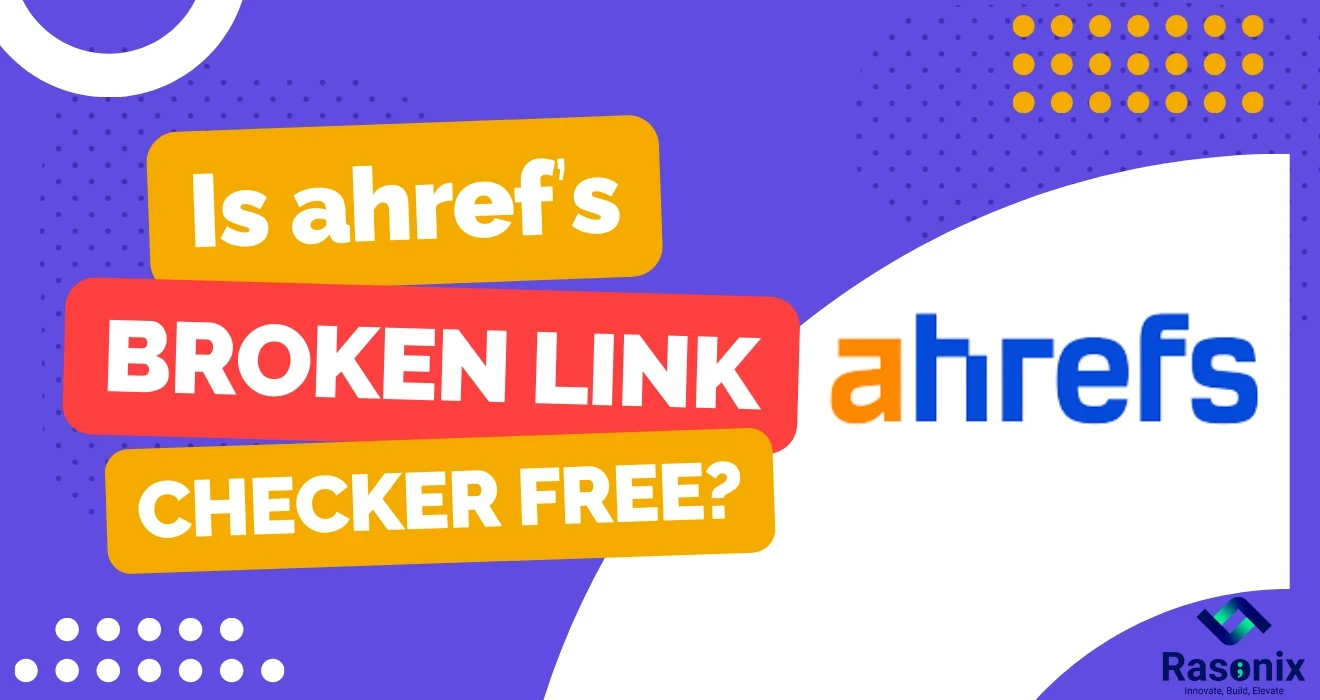Do you know that inaccurate financial or medical information on a website is not only able to mislead readers but can also have legal repercussions? Google is very serious about Your Money or Your Life (YMYL) content, and any errors in this category can do serious damage to your website's ranking.
YMYL describes content that affects an individual's financial well-being, health, safety, or general well-being. Google standards these pages to the highest, using its E-E-A-T (Experience, Expertise, Authoritativeness, Trustworthiness) guidelines to help users get reliable and accurate information.
Within this blog, we shall discuss typical YMYL content errors, how they hurt your site, and how you can evade them in order to keep your credibility and top search rankings intact.
Why Are YMYL Content Errors So Expensive?
Incorrect YMYL content isn't just a loss of rankings, it can lead to legal issues, loss of customer trust, and even Google penalties.
For example:
- A deceptive finance piece of content could lead to someone making a bad investment, and subsequently, there would be legal repercussions.
- An out-of-date health tip could result in health complications, undermining the site and author's credibility.
- A scam online store might lose the trust of its customers, which would mean less conversion and possibly lawsuits.
- Google's algorithms have been crafted to identify and downgrade untrustworthy YMYL content.
- The Helpful Content Update further emphasizes content-first approaches so that only those sites exhibiting authentic expertise and trustworthiness are well-ranked.
8 Typical YMYL Content Errors (and How to Correct Them)
Error 1:
One of the most common errors in YMYL content is the absence of expertise and authoritativeness. Most websites release health, finance, or legal tips without consulting experts. If a medical treatment article does not have a doctor's approval or a financial guide is authored by someone with no credentials in the industry, Google will not rank it. The fix? Make sure that content is authored or edited by professionals within the industry. Show author credentials, reference professional profiles, and quote authoritative sources.
Error 2:
Another serious problem is missing trust indicators. Sites without an "About Us" page, obvious contact information, or a privacy policy can look shady to users and Google. Without obvious trust features, your site may not rank well. To remedy this, ensure your site has comprehensive author bios, clear contact information, and security features like HTTPS and trust badges.
Error 3:
Inaccurate or stale data is another prime ranking killer for YMYL pages. Google values new, factually accurate content, and stale advice may lead users astray. A financial blog publishing old investment ideas, for example, can drain credibility. Avoid this by posting new articles on a regular basis, referencing new sources, and establishing a review system for outdated pieces.
Error 4:
Misleading or inflated statements are a red flag for Google. Clickbait headlines or sensational health or financial assertions can hurt credibility. Statements such as "This one trick will make you rich!" are not only useless for SEO but also against Google's quality guidelines. The solution? Give balanced, fact-supported content with realistic assertions based on data and expert opinion.
Error 5:
Lousy fact-checking and citation policies undermine a site's credibility. When content relies on unverified sources, Google won't rank it. Most YMYL sites don't have citations from trusted sources, so their content is less likely to be perceived as authoritative. The best method is to develop a strict fact-checking procedure, use only trusted sources, and cite appropriately.
Error 6:
User intent ignoring is another issue. Some YMYL content is overly focused on keywords rather than answering users' real questions. For instance, an article entitled "Best Investment Strategies" that merely discusses general finance trends without providing tips may anger users. The solution? Do deep keyword research and make sure that content answers users' questions meaningfully.
Error 7:
Lack of disclaimers in medical or financial content can also lead to trust problems. If a site offers investment or health advice without indicating that the information is for educational purposes only, users might make uninformed choices. Google prefers transparency, so including explicit disclaimers that content is not a substitute for professional advice is crucial.
Negative website design and user experience can also hurt YMYL rankings. If the website is old-looking, slow-loading, or hard to navigate, users will abandon it immediately resulting in increased bounce rates and reduced rankings. To address this, spend on clean, professional design, make it mobile-friendly, and optimize the loading speed.
Error 8:
Finally, not using Schema Markup can make it more difficult for Google to interpret and rank YMYL content. Schema assists search engines in interpreting information properly. For instance, medical websites should employ the Medical Review schema to authenticate health-based content. Including applicable schema markup about reviews, authors, and articles can enhance search visibility.
How to Optimize for E-E-A-T in YMYL Content
In order to preserve trust and rank well, you need to demonstrate Experience, Expertise, Authoritativeness, and Trustworthiness (E-E-A-T Guidelines):
- Experience: Demonstrate real-world implementation of knowledge (e.g., customer case studies, firsthand reviews).
- Expertise: Have trained experts develop or review content.
- Authoritativeness: Acquire backlinks from authoritative sites.
- Trustworthiness: Maintain website security and show transparent business operations.
The Impact of Google's Helpful Content Update
Google's Helpful Content Update favours user-oriented content, which rewards websites with:
- Original, expert-supported information instead of repeated AI-generated copies.
- Actionable and useful guidance for real-world applications.
- Well-researched and well-maintained materials that contribute substantial value.
For instance, if a financial planning website merely copies common knowledge without providing distinctive industry insights, it will be likely to rank lower in search engine results.
Case Study: The Cost of YMYL Blunders
Consider the example of a popular health and wellness blog that lost 70% of its organic traffic following Google's Medic Update. Why? Their content did not have medical expert verification, and they did not include credible citations. After they started having doctors review their content and used structured data, they recovered rankings.
Actionable Checklist for YMYL Content
- Utilize expert contributors and fact-checkers
- Include clear disclaimers and trust signals
- Update old information regularly
- Apply schema markup to structured data
- Optimize for quick load speed and mobile friendliness
- Refrain from making false claims and clickbait
- Track content performance and user comments
Conclusion
With YMYL content, ranking is more than just making it to the top of Google. It also means winning trust and credibility in a way that can truly affect other people’s lives. A slip with health advice, financial advice, or legal advice can bring trouble beyond mere ranking drops. It could hurt your reputation, break user trust, or even get you into hot water. This is why E-E-A-T (Experience, Expertise, Authoritativeness, and Trustworthiness) is not a ranking signal per se-it's the bedrock for content that actually makes a difference for humans.
The amount of misinformation on the internet is a lot, and Google is becoming stricter about what counts as trustworthy, expert-supported content. Your site needs accurate, well-researched, and transparent information that helps them get to new heights, but also makes them trusted by the users. Effective disclaimer fact-checks, expert bylines, and solid user experience-all are the tiny, yet crucial things that form trust and authority.
Do you want to improve your YMYL content, rankings, and make your site YMYL-compliant? We can help. Rasonix has the know-how to search engine-optimize YMYL content and actual users. Let us ensure that your website is a trusted resource, not just one more search result. Reach out for a free YMYL content audit today and let's boost your site!
Frequently Asked Questions on YMYL Topics:
What does YMYL mean in SEO?
YMYL is an acronym for "Your money or your life" a Google term referring to pages leaving effects on people's health, wealth, safety, or well-being. The standard requirements that Google places on such pages is high, so these pages do not involve the option of spreading misinformation that can cause harm to users.
In SEO, why is YMYL so important?
If your site is dealing with sensitive topics such as medical issues, finance, or professional advice, it's what Google deems vital to provide reliable, accurate information endorsed by an expert. Not complying with those could affect your rankings or even a ranking drop for your page.
What are some YMYL content examples?
Examples of YMYL content One would consider something that has a high stake in someone's life like medical information, financial advice, legal advice, or even product reviews. For instance, something like the best home loans needs to be informed by expert opinion so that readers don't get misdirected to make poor choices.
Which industries are most affected by Google’s YMYL updates?
It is the following sectors that are greatly affected by Google's YMYL updates: healthcare, finance, legal services, and eCommerce. A medical blog promoting untested treatments or a financial website giving out unsafe investment advice might get an enormous drop in ranking if the content fails to back itself up with viable research.
What are common YMYL content mistakes?
Common YMYL content failures They most certainly do not check facts, do not have expert opinions, refer to weak sources, or do not have any disclaimers, but these are other failures that can be very common as well. Google quickly lifts such pages down.
How do I improve my YMYL content?
The best approach would be to present expertise and a building of trust. This includes input from qualified writers, references to reliable sources, implementation of schema markup, and updating content. Also, having disclaimers and transparency would be an added bonus for credibility.


















 Subscribe Now
Subscribe Now